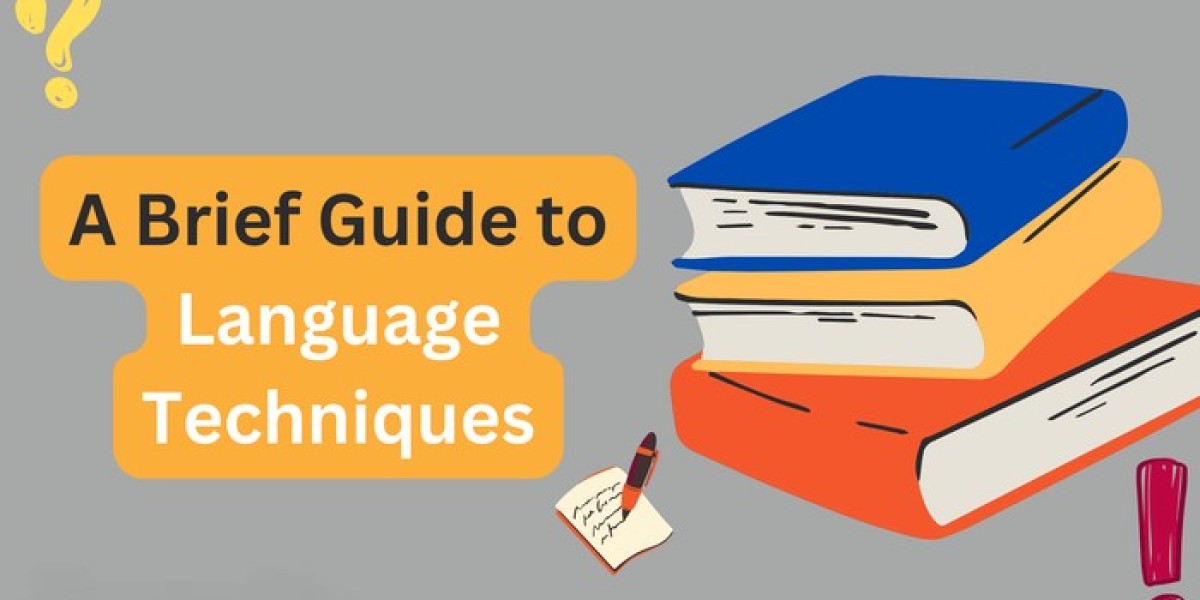Language techniques are essential tools used in English to convey messages effectively and create impactful writing. For students, understanding these techniques can greatly enhance the quality of their English assignments. This guide explores key language techniques and offers insights into their application, especially for those seeking assignment help UK.
What Are Language Techniques?
Language techniques have to do with the tools or methods that authors employ when writing. The idea behind these tools is to attempt to stir up feeling, conviction or interest among readers. They are very important in the contexts of narration, poetry, essays, and academic discourse. Understanding and using these tools in the assignments can improve the odds of doing a good work and aid communication of one’s ideas.
Why Are Language Techniques Important in English Assignments?
- Clarity of Expression: Using language techniques ensures that your ideas are communicated effectively.
- Enhanced Engagement: Techniques like imagery or rhetorical questions capture the reader’s attention.
- Academic Excellence: Understanding and applying these methods can significantly improve grades, especially in the context of assignment help in the UK.
- Critical Analysis Skills: Identifying techniques in texts sharpens analytical abilities, a crucial skill for English assignments.
Commonly Used Language Techniques
- Metaphor and Simile
Metaphors and similes are tools for comparison. While metaphors describe something as if it is something else (e.g., “Her smile was a ray of sunshine”), similes use "like" or "as" to make comparisons (e.g., “Her smile was like sunshine”). These techniques add depth and vivid imagery to your writing.
- Imagery
Imagery involves using descriptive language to create visual, auditory, or sensory impressions in the reader’s mind. For example, “The crimson leaves rustled in the autumn breeze” paints a vivid picture, making the narrative more engaging.
- Alliteration
Alliteration is the repetition of the same sound or letter at the beginning of closely connected words. For instance, “Peter Piper picked a peck of pickled peppers” creates rhythm and memorability in writing.
- Hyperbole
Hyperbole involves exaggeration for dramatic effect. For example, “I’ve told you a million times” emphasizes frustration or urgency.
- Personification
Personification attributes human qualities to non-human entities. For example, “The wind whispered through the trees” makes the scene more relatable and vivid.
- Rhetorical Questions
Rhetorical questions are posed to provoke thought rather than elicit an answer. For example, “Isn’t it time we took action?” engages the reader and emphasizes the point being made.
- Repetition
Repetition emphasizes key ideas and makes them more memorable. For example, Martin Luther King Jr.’s “I have a dream” speech effectively uses repetition to inspire and persuade.
- Emotive Language
Emotive language appeals to the reader’s emotions. Words like “tragic,” “heartbreaking,” or “inspiring” can evoke strong emotional responses, making your writing more impactful.
- Contrast
Contrast highlights differences to emphasize specific points. For example, “While some thrive in chaos, others find peace in order” underscores the divergence in perspectives.
- Tone
Tone refers to the writer’s attitude toward the subject. It can be formal, informal, serious, sarcastic, or playful. The appropriate tone depends on the purpose and audience of the assignment.
How to Identify Language Techniques in Texts
Identifying language techniques is a vital skill for analyzing texts. Here are steps to help:
- Read Thoroughly: Carefully read the text to grasp its overall message.
- Highlight Key Phrases: Identify sentences or phrases that stand out due to their emotional, descriptive, or persuasive nature.
- Analyze Purpose: Ask yourself why the writer used a particular technique. Does it evoke emotion? Does it create imagery?
- Take Notes: Jot down examples of techniques and their effects for future reference.
Tips for Using Language Techniques in English Assignments
- Understand the Assignment Brief: Before incorporating language techniques, ensure you understand the assignment’s requirements.
- Be Purposeful: Use techniques intentionally to support your argument or narrative.
- Balance Creativity and Clarity: While techniques like metaphors can enhance creativity, ensure they do not compromise the clarity of your message.
- Seek Feedback: Share your drafts with peers or professionals for constructive feedback.
- Get Professional Help: If you’re struggling, consider seeking assignment help in the UK for expert guidance.
Common Challenges in Using Language Techniques
1. Overuse
Overloading your writing with too many techniques can confuse readers. Use them sparingly and strategically.
2. Inappropriate Tone
Using an overly casual or formal tone can misalign with the assignment’s purpose. Match your tone to the intended audience.
3. Misinterpretation
Misusing techniques like irony or sarcasm can lead to confusion. Ensure your intent is clear.
How Assignment Help UK Can Support You
Navigating the complexities of language techniques can be challenging, especially for beginners. Professional assignment help in the UK can provide the following benefits:
- Expert Guidance: Experienced tutors can help you understand and apply language techniques effectively.
- Customized Support: Tailored assistance ensures your assignments meet academic standards.
- Time Management: With professional help, you can focus on learning while meeting deadlines.
- Improved Grades: High-quality assignments crafted with the right techniques can boost your academic performance.
Conclusion
Mastering language techniques is a crucial skill for excelling in English assignments. From metaphors and imagery to tone and repetition, these tools enhance the quality of your writing and make your arguments more compelling. By understanding and applying these techniques, and with the support of assignment help in the UK, you can confidently tackle any English assignment and achieve academic success.
About the Author
Apollo Carter is an accomplished author and also a teacher who uses ‘English language and academic writing’ techniques. Apollo gives practical and useful guidance to empower learners and assists them in performing well in their tasks. Residing in the UK, Apollo works as a contributor for several educational platforms and provides useful articles and guidance and professional assistance with assignments.



